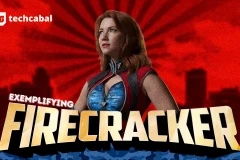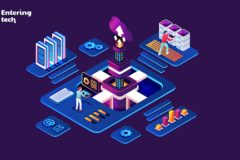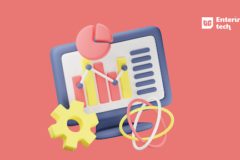
14 || September || 2022
View in BrowserBrought to you by

#Issue 003
How to become a
no-code developer
Hi 👋🏾
Who knew you could develop software without coding?
Not me, but now you and I know. In this newsletter, we break down this whole no-code developer business. You also get to see Foluso Ayodele try to convince us that the no-code developer career has a low barrier to entry: “Anyone with a will to learn is good enough for no-code.”
If this is your cup of tea, you’re in for a treat. If it’s not, don’t you want to see how you can make $30 cash an hour from building digital products without code? If you don’t care for that either, don’t worry. As usual, we bring you a fine list of tech advice, training and job opportunities.
If you take one thing away from this newsletter, let it be Foluso’s advice: “Don’t fall into the tutorial trap […] do not just watch videos and online courses. Build!”
by Immaculata Abba, Caleb Nnamani and Timi Odueso.

Tech trivia questions
Some trivia before we begin. Answers are at the bottom of this newsletter.
- Who was the first person to build a programming language?
- What was the first no-code tool to be built?

Who is a no-code developer?
Have you always wanted to build apps and products but you are afraid coding isn’t for you?
Well, lucky you, this edition of Entering Tech can make that possible.
💡 Here’s a quick background on coding. Software engineers or developers are the backbone of the tech world. All your favourite apps and games are built by developers who have to write code to build what they want. Now think of code as different languages that help computers speak to each other. You, as a person, can only control the computer’s conversation if you understand their language.

So why don’t people just learn the computer’s language A.K.A code? Well, because there are about 9,000 different languages, each with its own function and advantages. Furthermore, there are different kinds of software developers/engineers: frontend developers create the visual aspects like pages, menus, buttons, links, and graphics that you can see and click, while backend developers use code to connect servers, applications, and databases that deliver information to users.
Frontend engineers determine how things look, and backend developers determine how things work. Learn more about these engineering roles on TechCabal.
Both roles use different languages. Frontenders use languages like HTML or JavaScript, while backenders have really cool-sounding languages like Ruby on Rails, Python, or C++.
Most are similar but mastering each takes years of constant practice. Only a few like HTML and CSS—which are markup languages for frontend developers—can be mastered within months.
So, if you want to build an app or become a software developer, you have to learn several coding languages.
However, no-code developers bypass these language requirements with tools that help them build apps and products without them having to write a single line of code.

How it works
You know how subtitles help you watch anime or Squid Game without understanding Japanese or Korean?
It’s almost like that. You can understand what Naruto or Sae-byok are saying without understanding their languages because a tool has helped you translate it.
No-code developers do the same thing. They can speak to computers and build apps, websites and even companies using no-code tools that help them translate code into action.
💡 Think of it this way. Canva is a tool that helps anyone become a designer. In the olden days—or early 2010s—if you wanted to be a graphic or product designer, you had to learn how to use Corel Draw, Adobe Illustrator or Figma. On those apps, you had to draw the circles yourself, draw the cars, objects or anything you wanted to create. On Canva, some of these things are pre-built, so you can simply add a pre-drawn circle and change its size and colour.
No-code tools help developers as Canva helps designers.

What are the tools of a no-code developer?
You’ve probably already used some. If you’ve ever built a submission form on Airtable, created a shopfront on Shopify, made a zap on Zapier, or built a website on WordPress, then good news, you’re a no-code developer—jk, jk, you’re not. But it does mean you’ve used no code tools before.
The no-code tools like WordPress are quite basic though, and as our guest today says, “They are limiting and they don’t allow you do much.”
So what are the tools no-code developers use? Well, it depends on the type of no-developer you want to be. There are broadly three different paths to no-code development.
🌐 Web no-code developers who use no-code tools to build websites and web applications. Their tools are:
Bubble.io || Softr.io || WeWeb.io || Adalo Web Builder
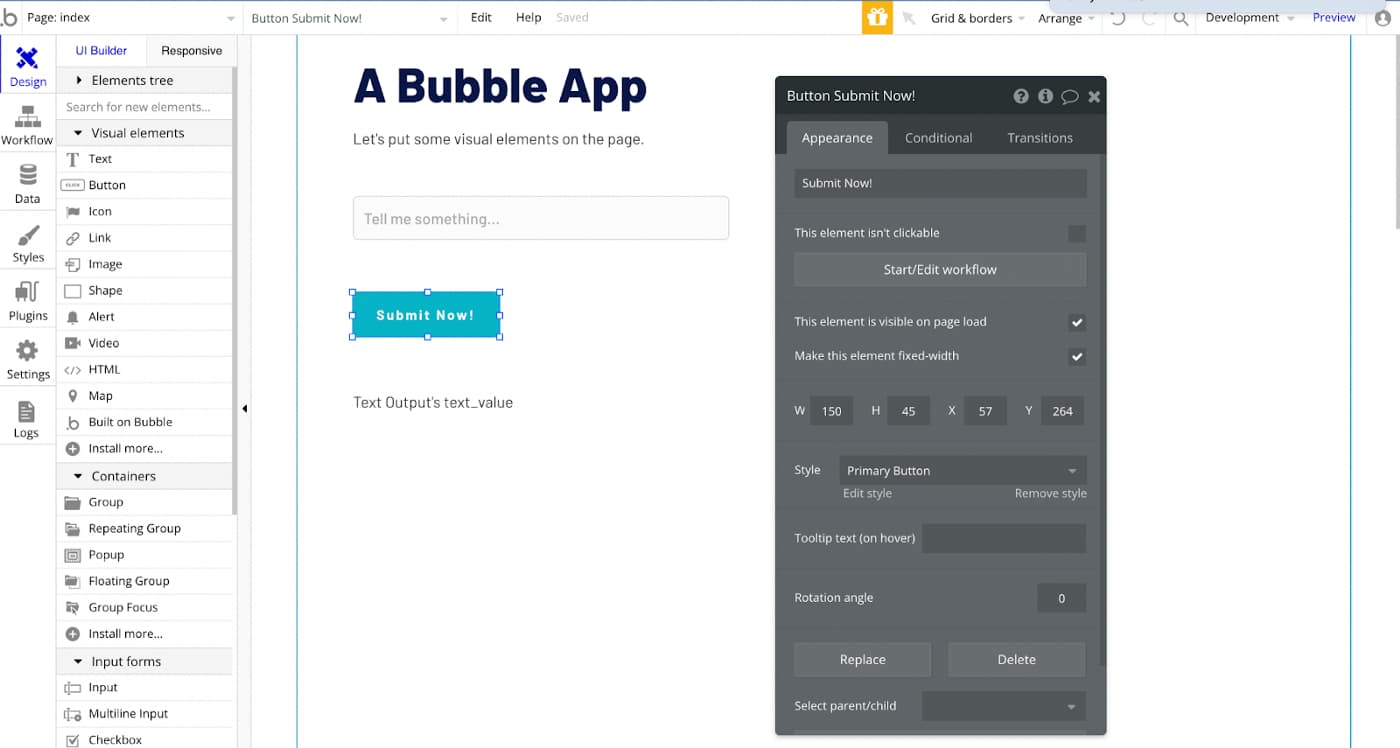
📱 Mobile no-code developers who use no-code tools to build mobile applications. Their tools are:
Adalo Mobile Builder || FlutterFlow || GlideApps
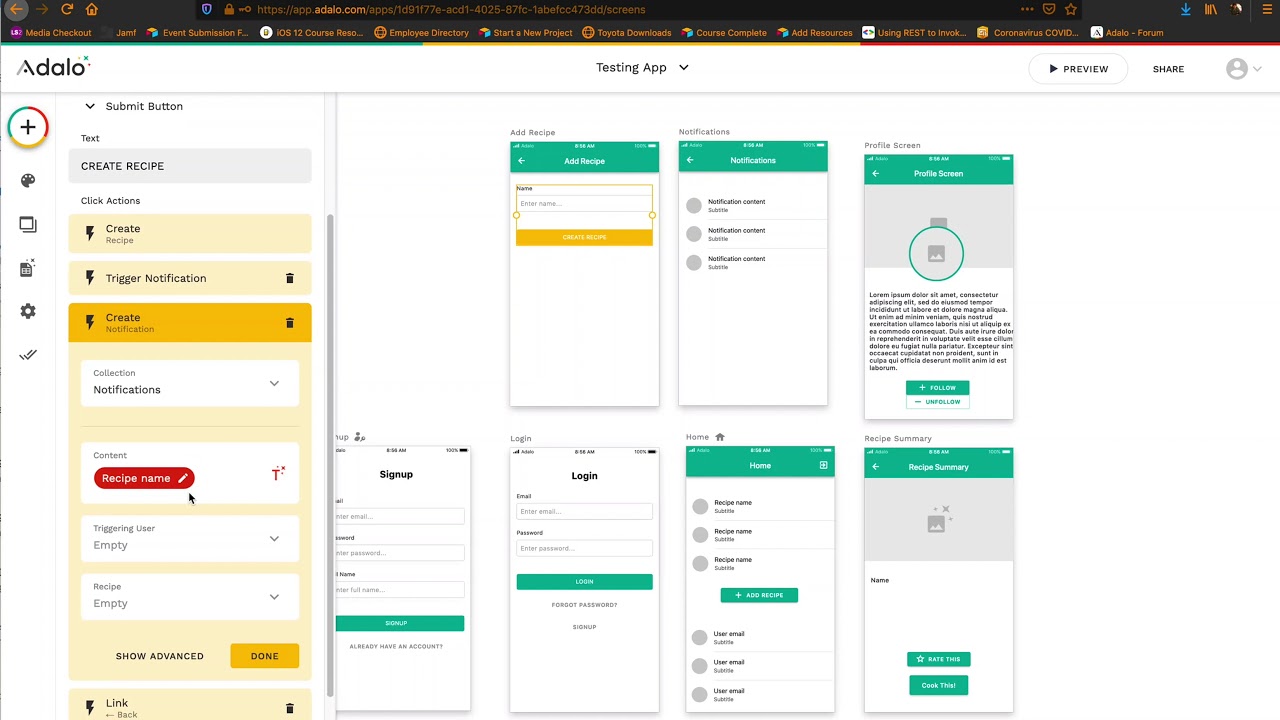
🔗 Automation no-code developers who use no-code tools to build automations. Their tools are:


Hear it from a no-code developer
For this week’s edition, we’ve brought a 19-year-old no-code developer who took the jump last year from full stack engineering to no-code.
Foluso Ayodele is a no-code (bubble.io) developer who works with WeLoveNoCode, a no-code agency based in San Francisco. He has professional experience in product management, full stack development, and is also skilled in technical writing.
Q. What were you doing before you became a no-code dev?
I was interning as a product manager for an investment firm. Before that, I was actually a full-stack developer.
Q. How was the transition, and what was your learning path?
So while writing code as a full-stack engineer, I kept trying to build products but they never panned out.
So after several trials with different products, I wanted to try something new and I found product management. While I was interning, I learnt about prototyping and it was in reading more about prototyping that I found my first no-code tool, Softr.io.
It was a bit shocking, to be honest. Without any tutorial or directive, I could figure it out. I was even able to build a product on Softr within 24 hours.
So I started reading more about no-code tools and that’s when I discovered the Bubble Community on Twitter. They were advocates of Bubble.io and they pushed me into trying my hands at it. Bubble was harder than Softr though, and there was a bit of a learning curve before I could do anything on it. It took me about a year before I could transition to Bubble full-time and get gigs from companies abroad.
Q. What should people who want to be no-code developers know?
Don’t fall into the tutorial trap! There are so many resources and materials out there and you should engage them, but do not just watch videos and take online courses. Build!
Practice and building are what makes a great no-code developer, not courses and certifications, although they help.
Also, don’t be a platform prostitute for too long. At the start of your learning journey, it’s fine to try out different platforms and see which you prefer. But after a while, settle down, become a one-platform developer and master one platform before jumping to another.
Q. What skills do no-code devs need?
There are no hard-skill requirements for no-code development. That’s the point; you don’t have to be a former engineer or know coding languages.
It’s a low-barrier-to-entry career into tech. Anyone will a will to learn is good enough for code.
For soft skills, however, you need the same basic transferable skills anyone in any other corporate role needs. Self-management skills because the role can be confusing at first. Communications and stakeholder management because clients can often be difficult and unreasonable with their needs. You need to learn how to communicate goals and objectives clearly.
Q. What are the misconceptions people have about your role?
That no-code = no work. Or that because there’s no coding involved, all we do is just prototyping.
Those are the biggest misconceptions. Yes, we don’t write code but that doesn’t mean there’s no hard work involved.
Q. How do you think no-code will affect the continent within the next couple of years?
There are not a lot of opportunities for no-code developers on the continent right now. In fact, I haven’t seen that many opportunities, and I’ve only worked with one Nigerian company so far.
I think we’re still growing our technical coding talent on the continent, we don’t have that many software engineers yet so it’s understandable that the focus would be on coding. I don’t think we’ll see that much growth in a couple of years but off the continent, there are sprawling opportunities for anyone who puts in the work. My company is always looking for referrals.

You can be a no-code developer too
If you’re interested in trying your hand at no-code development, here are a list of resources.
- Price: Free (for one week)
- Duration: 8.5 hours
- Tools Needed: Internet + laptop
- Level: Beginner and intermediate
- Price: Free (for one week)
- Duration: 5 hours
- Tools Needed: Internet + phone or laptop
- Level: Internet + phone or laptop
- Price: Free
- Duration: 1hr, 47 minutes
- Tools Needed: Internet + phone or laptop
- Level: Beginner (Zapier 101) and Advanced (Zapier 102)
- Price: $50
- Duration: 9.5 hours
- Tools Needed: Internet + phone or laptop
- Level: Beginner
- Price: $50
- Duration: 10 hours
- Tools Needed: Internet + phone or laptop
- Level: Beginner

Ask a techie
Q. I’m a physics tutor, a dean of studies at a technical college and team lead for logistics with a presence in 3 countries including Nigeria. I want to move into tech—project management. How should I proceed, with my background are they other code or no-code areas I should be looking at?
If you’re looking to continue with project management, then you should take Google’s Project Management course to supplement your experience.
You seem to already have experience with project management given your listed career path, but the course can help you chart the next phase of your career. It’s a 6-month course if you take it 10 hour/week but you can complete it earlier, and you’ll be certified by Google.
If you’re looking for other no-code careers to explore, then check out product management which is quite similar to project management. The difference is that you’re managing the vision and development process of a product.
You can also check out data analysis, which is where you’ll learn how to tell stories using data by processing, analysing and presenting it. It also has a google course, learn more here.
Q. Are there any tech community for UX writers in Nigeria?
There are no communities we know of that are specifically for UX writers but there are communities for UI/UX techies.
More Techies, for example, is a diverse community for Africans in non-tech fields who are looking to participate in the tech ecosystem irrespective of their backgrounds. There’s also the Non-Tech in Tech community, home to over 3,000 marketers, content managers, writers, and talent managers across 15 countries who are looking to transition to tech or to grow their careers in tech.
It might be hard to find one specifically for UX writing but you’ll definitely find similar minds in either of the two above.
That’s all we can take this week. Have any questions about working in tech? Ask away and we’ll find answers for you.👇🏾

Tech trivia answers
- It was Ada Lovelace! In 1883, Lovelace was helping Charles Babbage build the very first mechanical computer, the Analytical Engine, and she built the first language Ada to outline an algorithm for the Analytical Engine.
- It’s Lotus’ 1-2-3. Launched in 1983, it’s a spreadsheet programme that helped users manipulate and present data! Microsoft’s Excel was launched two years later in 1985.

Opportunities
- The Fall 2022 Educative Technical Writing Workshop is open to Nigerians who want to learn technical writing. Earn a technical writing certificate with this 1-month course. Apply now.
- Big Cabal Media – Head of Events – Lagos, Nigeria
- Big Cabal Media – Reporter, Citizen – Lagos, Nigeria
- Big Cabal Media – Newsletter Editor, Citizen – Lagos, Nigeria
- Big Cabal Media – Multimedia Content Creator, Citizen – Lagos, Nigeria
- Big Cabal Media – Newsletter, Editor, Zikoko – Lagos, Nigeria

No longer want to receive these emails? Unsubscribe here






















